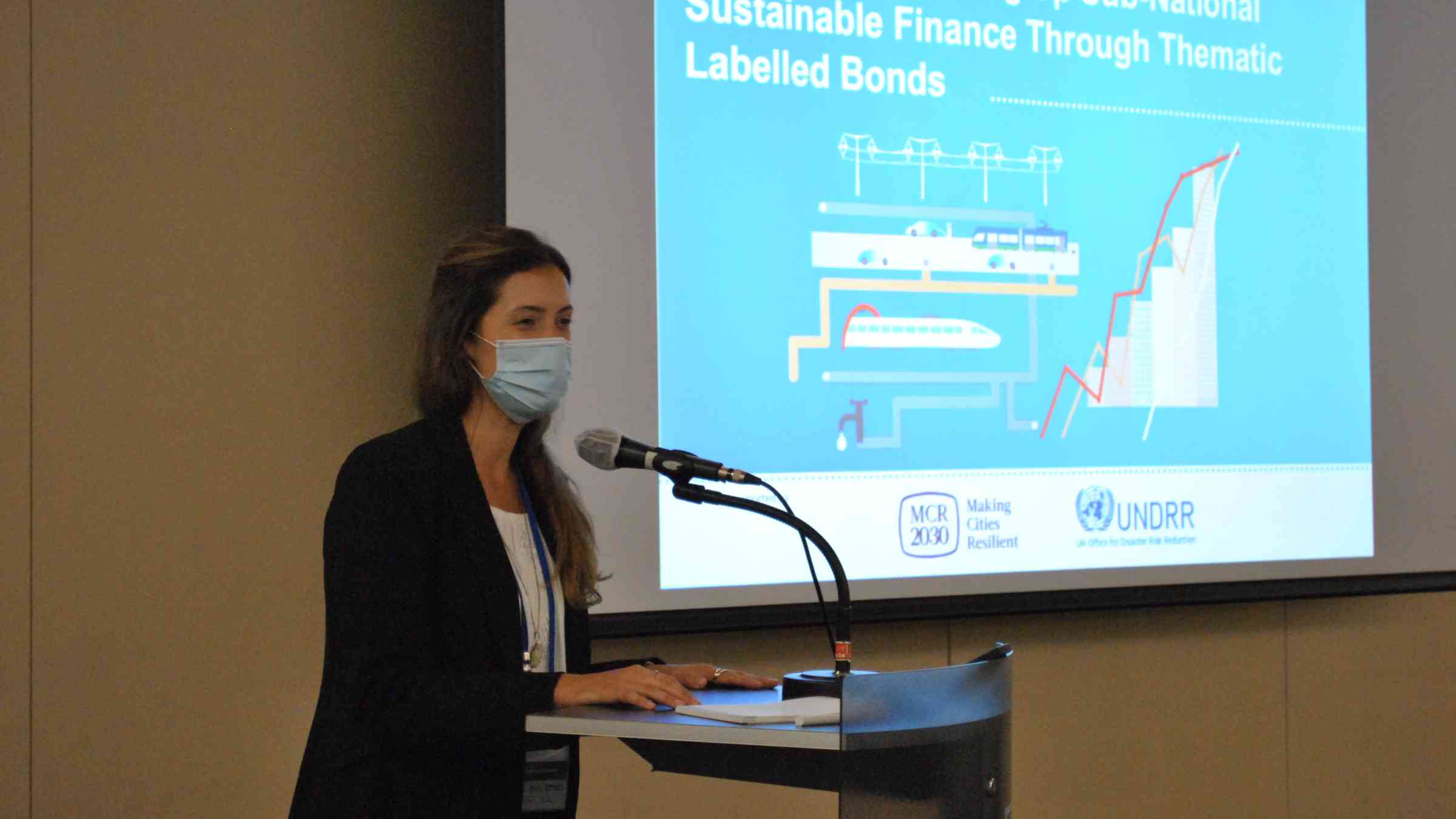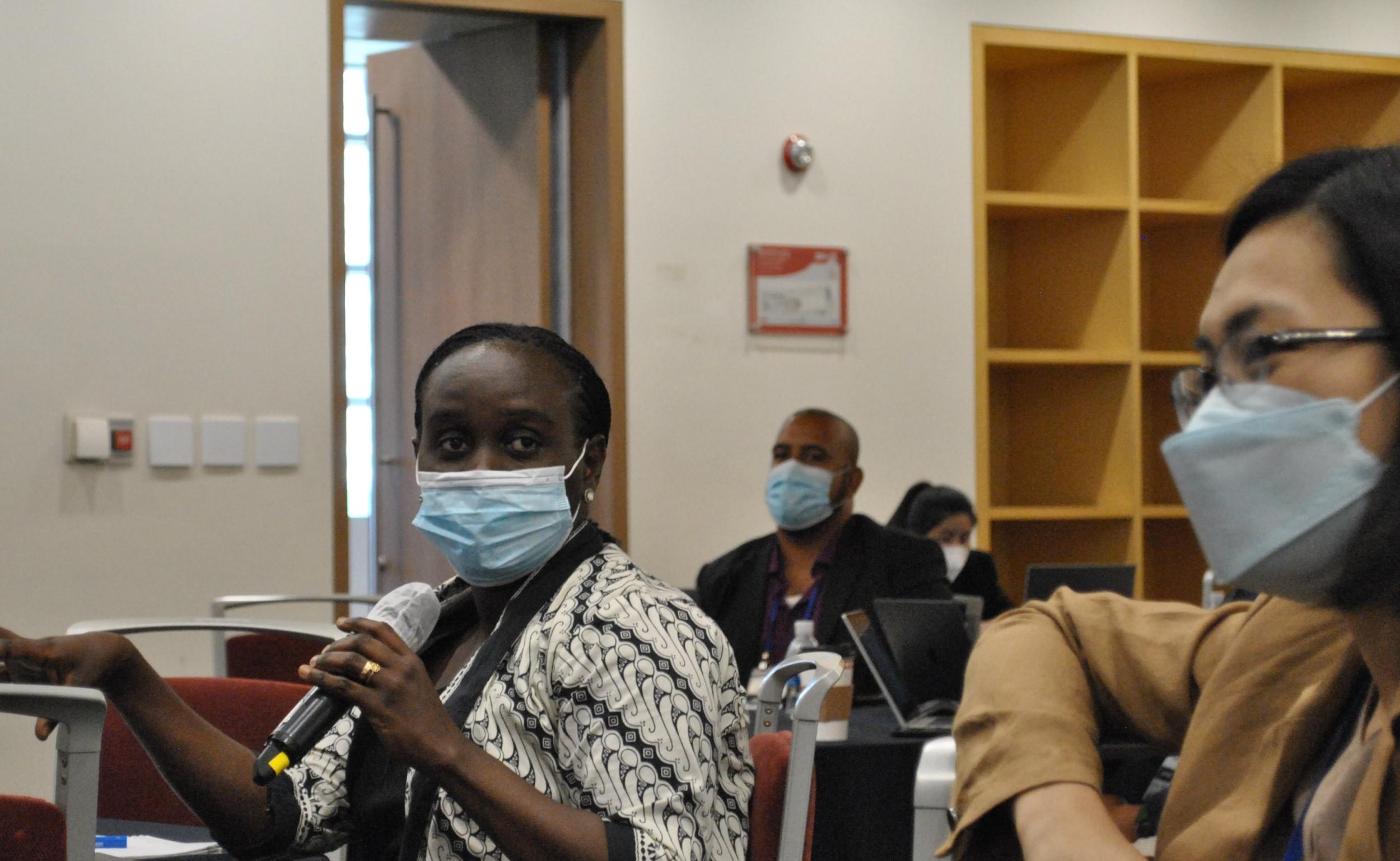Finance: The final frontier for local climate resilience

AN INNOVATIVE training is helping local governments bridge one of the biggest barriers to resilient and sustainable urban development in an era of escalating climate risk.
Local and national government officials from more than 20 countries are in Incheon, Republic of Korea, for what is believed to be the world’s first training on climate bonds specifically designed for local governments.
The training – Strengthening Local Government Capacity for Resilience Financing – is seeking to build understanding of alternative financial instruments, particularly thematic labelled bonds.
The Making Cities Resilient 2030 (MCR2030) event, organized by the United Nations Office for Disaster Risk Reduction (UNDRR) and delivered by Climate Bonds Initiative, is also providing a forum for municipalities to share experience and learn from each other.
And the gathering of senior participants from around the world grasped the opportunity.
Ms Martha Mugarura Assistant Commissioner of the Ministry of Lands, Housing, and Urban Development, in Uganda said: ‘We have passed the point of being more proactive with planning for climate risk; now is the time to be more proactive with climate financing. This is the missing link for both local and national governments.’

Mr Mustafa Hijazi, Council Member of the Municipality of Saida, Lebanon, agreed: ‘Climate change is putting so much pressure on local services compounding the difficult economic situation we are facing.
Mr Mustafa Hijazi
This training is a clear example of MCR2030 delivering on its commitment to help local governments increase their capacity to access and manage finance for disaster and climate resilience
Mr Sanjaya Bhatia, head of UNDRR’s Global Education and Training Institute and Office for North-East Asia, in Incheon, said: “While there has been some progress, financing for resilience remains a challenge for most local governments around the world.“This training is a clear example of MCR2030 delivering on its commitment to help local governments increase their capacity to access and manage finance for disaster and climate resilience.”
The CEO of Climate Bonds Initiative Mr Sean Kidney said: ‘There is still an urgent need to finance climate adaptation and resilience, which will require the use of different sources of finance, and this is where thematic-labelled bonds play a significant role.
Mr Sean Kidney
MCR2030 is a United Nations-convened global network of 1,386 local governments, representing more than 386 million people, that have committed to strengthening their disaster and climate resilience.
The international collaboration has also mobilized national governments, municipality associations, service providers, as well as 12 core partners that are a ‘who’s who’ of international organizations active on urban resilience.
All partners are registered on the MCR2030 online platform that offers a variety of services and tools to support local governments to reduce disaster and climate risk.
Climate Bonds Initiative (CBI) is an international organisation working to mobilise global capital for climate action. It achieves this through the development of the Climate Bonds Standard and Certification Scheme, policy engagement and market intelligence work.
The training precedes the International Disaster Resilience Forum 28-29 September, hosted by MCR2030 Resilience Hub Incheon Metropolitan City.

